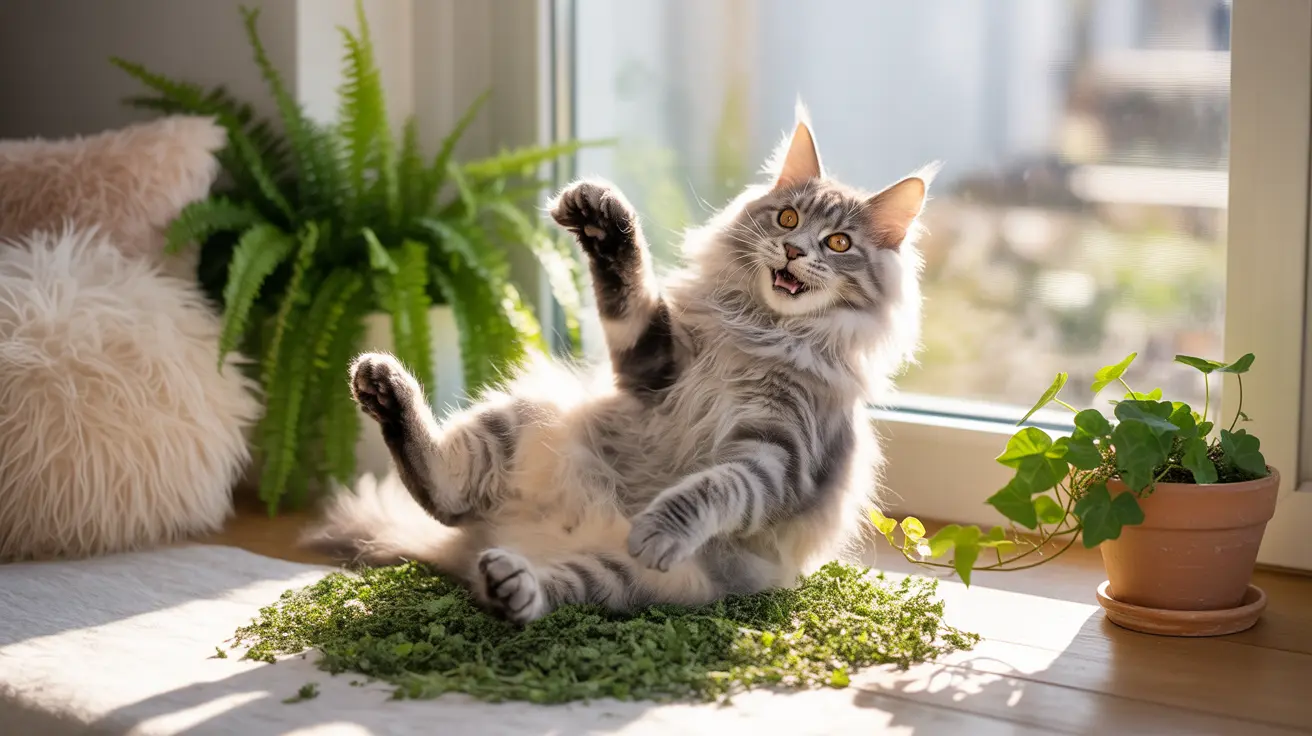Curious about how catnip can enhance your feline friend's wellbeing? This fascinating herb, scientifically known as Nepeta cataria, offers more than just entertainment for your cat. From stress relief to exercise motivation, catnip's benefits extend far beyond the typical rolling and purring we commonly associate with it.
In this comprehensive guide, we'll explore the numerous health benefits of catnip for cats, including its effects on behavior, wellness, and overall quality of life. Whether you have a catnip enthusiast or a cat who's never tried this natural treat, you'll discover valuable insights about this remarkable plant.
Understanding Catnip's Active Compounds
The magic behind catnip lies in its primary active compound, nepetalactone. This natural chemical triggers a euphoric response in many cats by binding to receptors in their nasal tissue. Alongside nepetalactone, catnip contains various beneficial compounds, including rosmarinic acid, a powerful antioxidant that offers protective benefits for your cat's cells.
Physical and Mental Health Benefits
Natural Stress Relief
One of the most significant benefits of catnip for cats is its ability to reduce stress and anxiety. After the initial excitement period, many cats experience a sense of calm and relaxation, making catnip particularly helpful during stressful situations like moving homes or introducing new pets.
Exercise Motivation
For indoor cats prone to a sedentary lifestyle, catnip can be an excellent exercise motivator. When sprinkled on toys or scratching posts, it encourages physical activity, helping maintain a healthy weight and promoting better cardiovascular health.
Behavioral Benefits and Training Applications
Positive Reinforcement Tool
Catnip serves as an effective training aid, particularly when teaching cats to use scratching posts or new litter boxes. By applying catnip to desired surfaces or areas, you can naturally guide your cat's behavior in positive directions.
Environmental Enrichment
For indoor cats, environmental enrichment is crucial for mental health. Catnip-infused toys and activities provide mental stimulation, preventing boredom and reducing destructive behaviors that often result from understimulation.
Safe Usage and Administration
While catnip is generally safe, moderation is key. Fresh or dried catnip can be offered in various ways: sprinkled on scratching posts, stuffed in toys, or grown in pet-safe gardens. Most cats self-regulate their intake, but it's wise to limit exposure to once or twice a week to maintain its effectiveness.
Natural Alternative to Traditional Remedies
As a natural herb, catnip offers a gentle alternative to synthetic calming products. Its stress-reducing properties can be particularly beneficial during thunderstorms, veterinary visits, or other anxiety-inducing situations.
Frequently Asked Questions
Is catnip safe for cats, and what are the main benefits of using catnip?
Yes, catnip is completely safe for cats. The main benefits include stress relief, exercise encouragement, mental stimulation, and behavioral training support. It's non-addictive and typically causes no adverse effects when used in moderation.
How does catnip work, and why do some cats not respond to it?
Catnip works through nepetalactone, which binds to receptors in a cat's nasal tissue. About 50-75% of cats respond to catnip, with the sensitivity being hereditary. Kittens under 6 months and some elderly cats may not show a response.
Can catnip help calm an anxious or stressed cat, and how should I use it for stress relief?
Yes, catnip can help calm anxious cats, particularly after the initial stimulation period. For stress relief, try sprinkling dried catnip in a quiet area or using catnip-infused toys before potentially stressful events.
What are some creative ways to use catnip to encourage exercise and reduce destructive behavior in cats?
Sprinkle catnip on scratching posts, cat trees, or toys to encourage activity. Create catnip-scented play areas away from furniture, or use catnip-infused toys during scheduled play sessions to provide structured exercise.
Are there any risks or side effects of giving my cat too much catnip?
While catnip is non-toxic, excessive consumption may cause mild digestive upset. Overuse can lead to decreased sensitivity. It's best to offer catnip no more than once or twice a week to maintain its effectiveness.
Conclusion
The benefits of catnip for cats extend far beyond simple entertainment. From stress relief to exercise motivation, this natural herb offers numerous advantages for feline physical and mental health. When used appropriately, catnip can be a valuable tool for enriching your cat's life and supporting their overall wellbeing.






